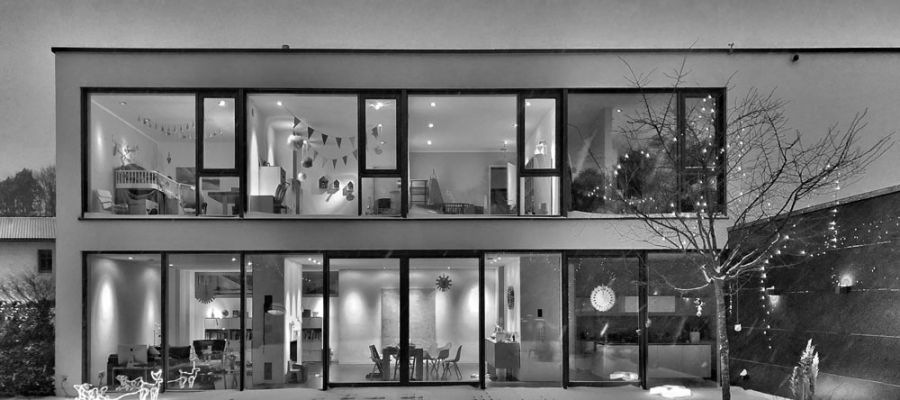What if you suffer an injury on someone’s property?

When you visit someone’s house, store or office, you put your safety in their hands. It is their responsibility to ensure that visitors do not encounter hazardous conditions that may cause injury to the best of their ability.
Section.5 of Alberta’s Occupier’s Liability Act states: “An occupier of premises owes a duty to every visitor on the occupier’s premises to take such care as in all the circumstances of the case is reasonable to see that the visitor will be reasonably safe in using the premises for the purpose for which the visitor is invited or permitted by the occupier to be there or is permitted by law to be there.”
‘What is an ‘occupier’ vs. a ‘visitor’?
There are three important terms in that section of the Act that you need to understand.
First, an “occupier” is someone who is in possession of the premises or who has “responsibility for, and control over, the condition of premises, the activities conducted on those premises and the persons allowed to enter those premises.”
That means any party with a degree of possession of a property, even on a temporary or partial basis, may be considered an occupier. That could include a property owner, manager, landlord, tenant or temporary lessee. There could be more than one legal occupier of a property at a given time.
The next term that needs definition is “visitor.” According to the Act, “visitor” means “(i) an entrant as of right (ii) a person who is lawfully present on premises by virtue of an express or implied term of a contract, (iii) any other person whose presence on premises is lawful, or (iv) a person whose presence on premises becomes unlawful after the person’s entry on those premises and who is taking reasonable steps to leave those premises.”
In essence, a visitor is essentially anyone who is legally permitted to be on the premises in question. In a commercial setting, visitors might include customers, maintenance workers, product representatives and delivery persons.
What is ‘reasonable’?
The final key term to look at is “reasonable” when discussing the steps that must be taken to ensure a premise is safe. The Supreme Court of Canada has stated that when judging whether an occupier took the necessary steps to ensure a safe environment, courts must examine the “factors which are relevant to an assessment of what constitutes reasonable care” and that will be “very specific to each fact situation.”
An occupier is not required to protect visitors against all conceivable risks, just those that are reasonably foreseeable. That is why the occupier is required to only take reasonable precautions to prevent harm. The standard is reasonableness, not perfection.
Examples of premises an occupier would be responsible for include:
- parking lots;
- sidewalks and walkways;
- retail stores and shopping centres;
- health-care facilities and retirement homes;
- office buildings;
- apartments, condominiums and hotels; and
- private residences.
It can be difficult to determine liability
Cases involving injuries on other people’s property are not generally clear cut. In some cases, the court may decide that the visitor contributed to their injury through their own actions. An example would be if you were wearing dress shoes with smooth soles when you slipped and fell on ice while on someone’s property.
Having a personal injury lawyer at your side will ensure that your claims for compensation are presented as clearly as possible. After all, occupiers must not only take the responsibility for icy driveways, walkways, and sidewalks, but they must also be responsible for cracked walkways, wet floors, missing signage, unfinished or dilapidated decks and property flooding.
What happens if I’m injured?
If you have broken bones, are bleeding or are bruised, seek medical attention as soon as possible and keep track of any diagnosis. Even with less-severe injuries, it may be prudent to get checked out as pain could manifest themselves in the weeks or months to come.
If possible, take photos of the scene of the accident and record the names and contact information for any witnesses. Don’t accept any degree of blame for the accident. That will be for insurers or the court to decide.
Call us for assistance
When you meet with our lawyers, we can review what steps the occupier took, or didn’t take, to prevent injuries to visitors and their degree of liability. Perhaps there were structural problems at the premise, such as unsafe or broken flooring, or water pooled on a tile floor with no signs warning customers to watch their step.
Schedule your Free Consultation by calling (403) 452-2011 or send a message to kantor@kantorllp.ca. We will represent you on a contingency fee basis, so we do not get paid for our time and attention until we settle.
AFTER AN ACCIDENT, CONTACT US
A personal injury lawyer can help guide you through your options and help you obtain the compensation you need to help you recover from any injuries. They can also make sure that your insurance company does not attempt to limit the compensation that you are owed. Schedule your Free Consultation by calling 1 (403) 930-8594 or send a message to kantor@kantorllp.ca. We will represent you on a contingency fee basis, so we do not get paid for our time and attention until we settle.
